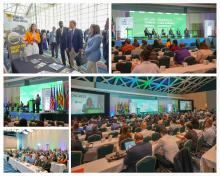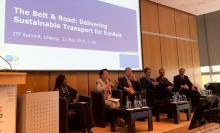
The 2nd IRF Europe & Central Asia Regional Congress, held in Plovdiv, Bulgaria, from September 24-27, 2024, underscored the essential role of regional connectivity in fostering sustainable growth and enhancing road infrastructure. As countries in Europe and Central Asia face the need to modernise their transportation networks, improving regional connectivity is crucial for economic development, trade, and mobility.
Emphasising connectivity and integration
The Congress, themed "Future roads: innovate, invest, achieve zero," highlighted how robust, interconnected road networks can drive economic progress by facilitating trade and movement across borders. Regional connectivity not only strengthens ties between neighbouring countries but also reduces transportation costs and accelerates supply chain efficiency. Attendees delved into projects aimed at integrating transport systems to improve connectivity across Europe and Central Asia.
Day 1: Opening plenary on connectivity
In the opening plenary, key speakers emphasised the strategic importance of seamless connectivity. As Europe and Central Asia aim to increase regional trade, efficient road networks are vital. Experts discussed how investments in infrastructure could bridge existing gaps, enhancing economic cooperation and resilience across regions.
AN1A6695 (no caption needed)
Day 2: Innovative solutions for regional development
The Congress continued with sessions on technological advancements that can improve connectivity. From AI-enhanced traffic management to blockchain for supply chain transparency, participants explored how these innovations could be leveraged to develop an interconnected road network that meets both current and future demands. Connectivity projects focusing on the expansion of cross-border transportation corridors were also featured.
Day 3: Sustainability and cross-border safety
Day three emphasised the need for sustainable infrastructure to support connectivity while reducing environmental impacts. Presentations covered how eco-friendly materials and practices can contribute to durable roads that withstand regional climate challenges. Road safety, especially in cross-border corridors, was also discussed, highlighting collaborative approaches to ensure consistent safety standards across the region.









